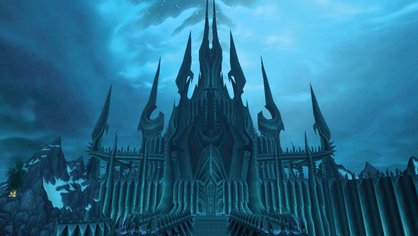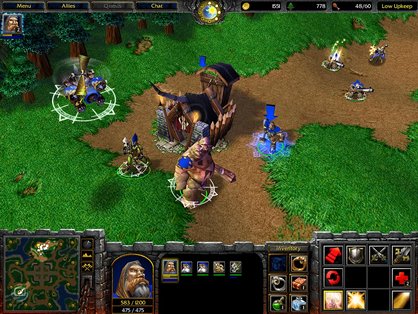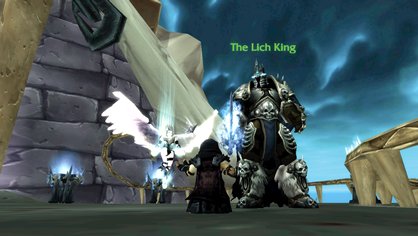The history of Warcraft
INTERVIEW: Blizzard's loremaster gives a behind-the-scenes glimpse of the shaping of Azeroth
Do ‘good’ and ‘evil’ exist in the Warcraft universe or is it all just shades of grey?
Evil is absolutely real in Warcraft... but you have the whole spectrum of black, white and greys in between too. What’s interesting about Warcraft is that in Warcraft I, the noble humans and evil orcs were very one-dimensional. It was pretty much good guys vs bad guys and what really interested me was challenging that idea. I love the idea that the orcs might have had a very bright origin, but they got involved in some hairy stuff with demons and got turned into this demonic war machine. Can a culture come back from the brink like that? Can a culture be saved? That’s part of what we did in Warcraft III.

We took Thrall, this sort of orc messiah character who’s worked very hard over the years to bring his people back from the abyss and give them an identity and a homeland. I just love the idea of turning [typical fantasy elves] into blood elves, having an entire race of people with an addiction problem. Can they be brought back from the brink of the abyss or does a society sometimes go too far for redemption? I love those polarities. I love the fall from grace and the possibility of redemption, because you can have it come to pass in a unique individual like Kerrigan from StarCraft or the Lich King from Warcraft, and you can also use those scenes at a societal level. That’s always been compelling to me.
Do you ever try to teach big life lessons in the games?
I wouldn’t presume that I teach ethics or anything like that, but it’s kind of funny. I’ve had this wonderful career at Blizzard and once WoW really started to take off and there were more than ten million players out there, it really started to shake me for a while that I wrote this and millions of people were taking it in. I guess I didn’t realise I had been sitting in front of this really big microphone that reached so many people and it really freaked me out. I was left wondering if I had really paid attention to the kinds of things I’d been responsible for. I want to be conscious about the things I say and the stories I suggest to, whether I’m writing them directly or working with development teams.

There are a lot of fallen heroes in the Warcraft universe.
The price to be paid for playing with fire and the illustration of corruption and redemption – these are things that have always compelled me... I guess that’s just my own art and my own vision coming out. My great hope is that when people look back at this product, it will incite some thoughtful discussion. But I think it gets dangerous when you start chasing or forcing that. This stuff is great, but the greatest value at the end of the day is the feeling of being heroic and even in the dark storylines with corruption and such, I want to make sure it’s balanced by the other side of the story: potential redemption and societal healing... You don’t want people to be turned off by too much darkness.
Weekly digests, tales from the communities you love, and more
So was Arthas destined to do what he did or did he have a choice? Could the events he set in motion ever have been avoided?
I believe there was always a choice for Arthas. Always, always a choice... even though the Lich King believed it was inevitable. Otherwise there would be no tragedy. Otherwise they’re all just cogs in the machine and the story loses all sense of cost. I think that choice, in that innate human moment where you decide situationally if you are a hero or villain – that’s where all the energy comes from. The choice, that innate struggle. You could have all these big epic, heroic Paladin characters that can do no wrong.

Nah, that doesn’t make things interesting; that just makes them one-dimensional. If you discover that they wrestle with dark thoughts or corruption every day, yet still they toss on their boots and go out every morning and right the wrongs, then it’s far more compelling. That’s what most people identify with... We put on our shoes one foot at a time, go to work every day and do the best we can do. Having that mirror in this fiction is what makes it sing to people.
Feb 3, 2010


